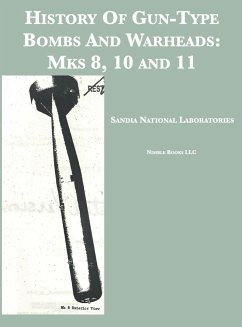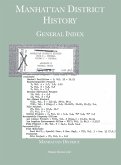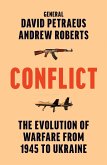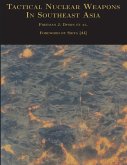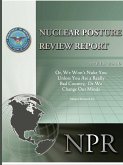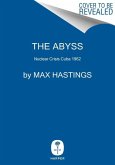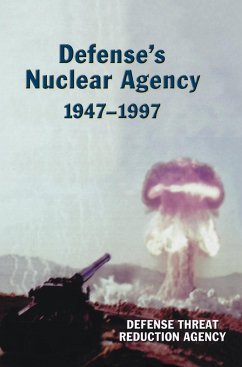The marketplace for books about military history is crowded with an abundance of titles about every weapon system ever built, from trireme to Tiger tank, but, ironically, is almost deserted when it comes to the most fearsome weapons of all: the never-used nuclear weapons of the Cold War. That gap is partly filled by this never previously published series of declassified official histories written by Sandia National Laboratories in the late 1960s. This 64-page reproduction of a declassified report includes a timetable of weapon events; a history of gun-type bombs and warheads; a glossary of terms; and references with 93 endnotes. This largely unredacted report tells the story of the gun-type Mk 8 and Mk 11 nuclear warheads that were developed beginning in 1946 in response to primarily Naval requirements for nuclear warheads that could penetrate water, earth, or thin steel before detonating. Attention at Los Alamos at the time was focused on implosion-type warheads because gun-type warheads made inefficient use of fissionable materials, so the Bureau of Ordnance was asked to take the lead in initial studies before work moved to Sandia. The military asked the bomb designers to focus on gun-type warheads for several major missions: delivery via subsonic and supersonic aircraft; via cruise missile; and via guided missile. They were asked to ensure that the warhead would detonate successfully after penetrating water, earth, rock, and thin steel. An extensive testing program gave confidence that this could be achieved with gun-type warheads. There was some resistance to the the requirement for penetrating solid rock--a mission that in the modern era has become of paramount importance. If the Mk 8 and its successor the Mk 11 had ever been used in anger, it would most likely have been in the context of a global nuclear war in the 1950s, perhaps beginning during the Korean War, delivered against targets on the periphery of the Soviet Union or against the People's Republic of China. They would have been delivered via AD-4 Skyraiders flying from carriers like USS Princeton--think James Michener's BRIDGES AT TOKO-RI--or, later, a range of other Navy and Air Force aircraft. Each warhead detonated would have resulted in thousands or tens of thousands of deaths, in all likelihood mostly among civilians unlucky enough to live in the vicinity of important peripheral Soviet or Chinese bases. Another chapter from a history that we were fortunate not to live. Readers who enjoy alternate history like the works of Harry Turtledove or THE MAN IN THE HIGH CASTLE may find this a thought-provoking and sobering read.
Hinweis: Dieser Artikel kann nur an eine deutsche Lieferadresse ausgeliefert werden.
Hinweis: Dieser Artikel kann nur an eine deutsche Lieferadresse ausgeliefert werden.

